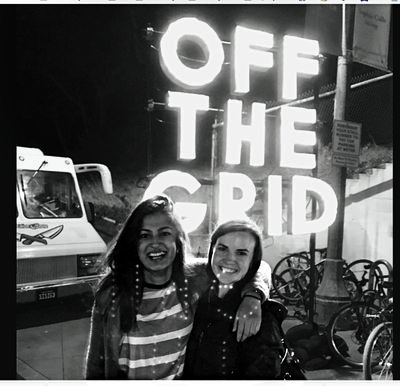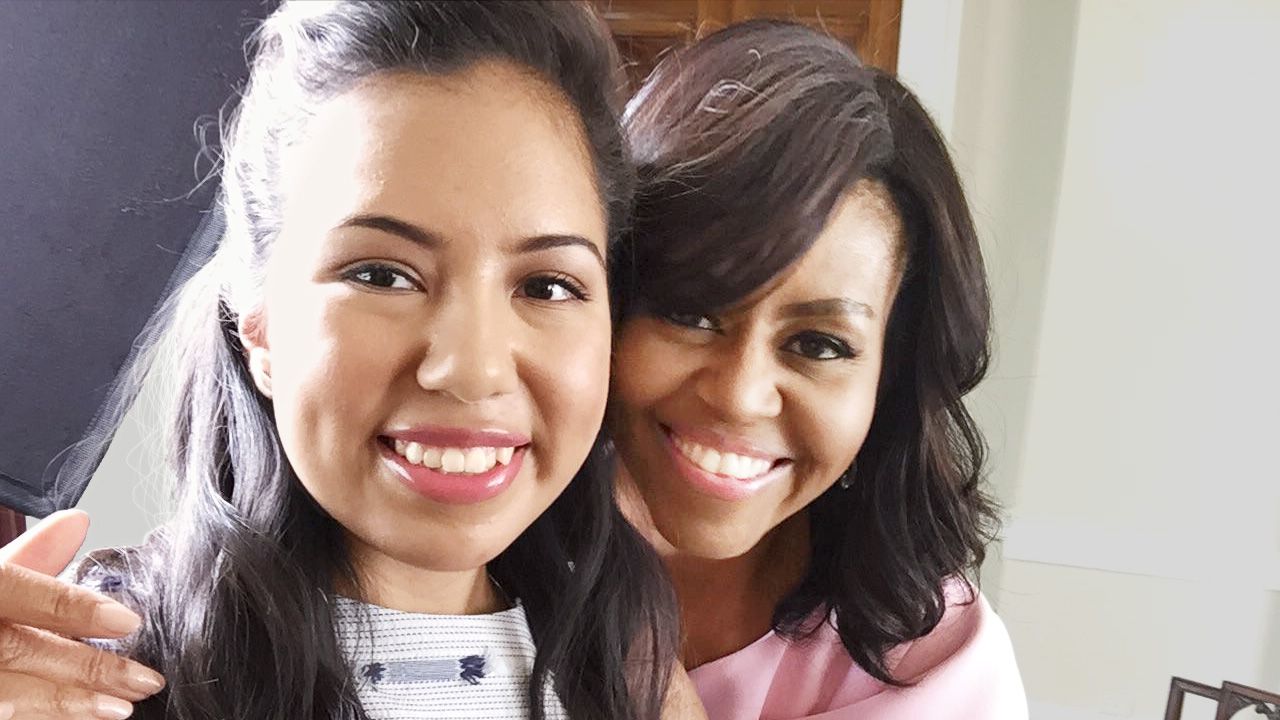Male Coders Who Drop Out of College Are Heroes in Silicon Valley—but What About the Women?
Twentysomething women are bucking stereotypes by dropping out of school to make it in tech. But whether Silicon Valley will embrace their ambition or eat them alive remains to be seen.
The College Dropouts Who Made It Big is not a new phenomenon, particularly in the tech industry. There’s Bill Gates, who left Harvard to found Microsoft with his childhood friend Paul Allen—a Washington State University dropout. Before building Uber, Travis Kalanick abandoned UCLA to launch search-engine and file-sharing companies. Mark Zuckerberg famously started Facebook in his Harvard dorm room, ultimately ditching Cambridge, Massachusetts, for Palo Alto, California, after his sophomore year. The list goes on: Steve Jobs (Apple), Jack Dorsey and Ev Williams (Twitter), Michael Dell (Dell), Larry Ellison (Oracle), Daniel Ek (Spotify), Jan Koum (WhatsApp), and Arash Ferdowsi (Dropbox).
The exceptional success of these entrepreneurs—and initiatives like PayPal cofounder Peter Thiel’s pet project the Thiel Fellowship, which pays students age 23 or younger $100,000 to skip or stop school and launch ventures—spawned a movement. College became an inconvenient detour in the path toward becoming a billionaire, and many young dreamers spurned lectures for real-life experience on the West Coast.
“Everyone is trying to have gender diversity. Whether it’s for appearances or out of the goodness of their heart, it doesn’t really matter.”
But they’re all men. This elusive club has lots and lots of Y chromosomes, while female-led startups with hearty capital pools and national brand recognition—Rent the Runway, Minted, Stitch Fix, Birchbox, and LearnVest, to name a few—often feature founders touting MBAs from Harvard or Stanford. Chalk it up to women’s penchant toward overpreparedness, or a lack of role models. Sure, BBG Ventures’ Susan Lyne managed to drop out of three schools (art school, George Washington University, and the University of California, Berkeley) in four years—and Elizabeth Holmes, once Silicon Valley’s darling, left Stanford at 19 to launch her blood-diagnostics company, Theranos. Yet Lyne spent decades working in the media industry before cracking the tech industry. And Holmes—well, her fall was swift and painful after news that Theranos, then valued at some $9 billion, had smudged the truth about its technology’s accuracy.
But the times, they are a-changin’—thanks in large part to the pileup of bad press for the tech industry’s self-reported support of meritocracy over the past few years. Gender-discrimination lawsuits, sexual-harassment claims, diversity reports with embarrassingly weak numbers, and study after study citing the dearth of female-founded companies with venture capital backing have encouraged corporations and funders to respond with a slew of women-friendly offerings. Y Combinator, a startup incubator harder to get into than Harvard, launched its Female Founders Conference in 2014 and reported a 21 percent acceptance rate of companies with a female cofounder in its summer 2017 class (between 2005 and 2010, only 14 of the nearly 450 founders accepted to Y Combinator were women); Apple committed $50 million to diversity and inclusion programs in 2015; a group of top-tier VCs launched mentoring organization Female Founder Office Hours in November 2017; and funds like Lyne’s BBG Ventures are pouring money only into companies with at least one woman cofounder.
If you are a strong woman with a strong business idea, you won’t have a problem getting funding,” says Jenny Lefcourt of Freestyle Capital, where 30 percent of the companies they funded last year featured a female founder or cofounder. “Everywhere, everyone is trying to have gender diversity. Whether it’s for appearances or out of the goodness of their heart, it doesn’t really matter.”

Mehak Vohra (left) and Stacey Ferreira at a Presidio Picnic event, August 2017
Does this mean there’s never been a better time for entrepreneurial women to ditch school and head west? Don’t call it a movement—but there are more than a handful of audacious young founders who have traded in academia for startup life.
On New Year’s Eve in 2014, Lucy Guo was partying at a friend’s apartment when her cell-phone service shut off. “Oh, great,” she grumbled. She knew the culprits: her parents. She had been fighting with them for the past six months; Guo had scored a software-engineering internship at Facebook and then received a Thiel Fellowship grant the previous spring, and deserted her plans to return to Carnegie Mellon University, where she had spent two years pursuing a double major in human–computer interaction and computer science. She had been ignoring her parents’ e-mails for a few weeks—and they retaliated by kicking her off their family phone plan (the only bill her parents still paid). She broke down and cried. “It was the flood of emotion. Like, Wow, my parents really don’t support me.”
Get exclusive access to fashion and beauty trends, hot-off-the-press celebrity news, and more.
Guo, now 23 and a self-described truant, never intended to drop out. But a paid summer internship at a startup after her freshman year sparked a revelation: “Maybe I’d rather just make money than pay money.” Pittsburgh (home to Carnegie Mellon) never looked bleaker as she applied for a Thiel Fellowship.
“When you drop out, Silicon Valley showers you with compliments.”
Post-internship, Guo launched—then abandoned—a food-delivery app and took on product-design roles at Quora and Snapchat, where she worked directly with cofounder Evan Spiegel. Life was good: She was making six figures, and she and her friends coded by day, danced all night, and swarmed basement parties at hacker houses. “When you drop out, Silicon Valley showers you with compliments,” Guo says, citing the culture’s proclivity toward rebel worship. “But then I started to open my eyes and focus on impact.”
While she was at Snapchat, Guo and a former colleague from Quora (who eventually dropped out of MIT) pitched an idea to Y Combinator. It evolved into Scale, which enables companies to outsource low-skill tasks. An Uber ride led to the company’s seed round: Guo told her driver about Scale, and he suggested she look up venture capitalist Paige Craig. Guo friended Craig on Facebook, he accepted, they met face-to-face, and Arena Ventures (Craig’s fund) ponied up $100,000.
“Now, I wake up at 5 a.m. I’m in a routine: Work out, get to work, leave the office, sleep, repeat,” she says. In August, Scale closed its first major fundraising round with $4.5 million in capital. “I see my friends who have just graduated; I feel a little bit of a disconnect,” says Guo. “I feel ahead.”
Like Guo, Stacey Ferreira leads a relatively adult life for someone her age. The 25-year-old runs Forge—an app that allows hourly workers to set their own schedules—from a light-filled office in San Francisco. She spends Sunday nights stocking up on sushi packs and sandwich rolls for the week at Trader Joe’s. She typically gets into the office around 7 a.m. and leaves at 8:30 p.m.

Gemma Busoni interviewed then-first lady Michelle Obama for the May 2016 issue of Seventeen
Forge is Ferreira’s second company. She launched her first in 2011, shortly after graduating from high school. Ferreira hatched the idea for a secure-password company, MySocialCloud, with her brother, then a rising junior at the University of Southern California. She slept on the bedroom floor of their apartment, scraping together her meager savings to pay her half of the $450 monthly rent and surviving all summer on Doritos and apples. Then, at 3:12 a.m. Pacific time on June 10, 2011, their destinies took a turn. “Enjoy intimate cocktails with me in Miami on June 15th - $2,000 to charity. For details e-mail: Community.investment@fly.virgin.com,” tweeted Virgin Group founder Richard Branson. They borrowed the money from their parents and flew to Miami; 18 others paid the $2,000 fee and, in the cocktail dress she wore to prom, Ferreira joined the group at Virgin’s swank 25th-anniversary party. The next day, they all sat in a circle and introduced themselves to Branson. Ferreira admitted she had borrowed the funds to come, which impressed him. By the end of the trip, she had accomplished her goal—his e-mail, on a scrap of paper in her palm (“Is this really his personal e-mail?” she pressed his assistant. “Yes! Don’t lose it,” she shot back). Once home, they e-mailed Branson a link to their prototype. He sent his tech adviser to meet them and do a deep dive into their concept. Within a week, he gave MySocialCloud $1.2 million.
Despite Branson’s investment, Ferreira started at NYU as a freshman in the fall of 2011. She worked bicoastally for the school year, then went full-time at MySocialCloud in June 2012. To save money, Ferreira and her brother lived in the MySocialCloud office: They slept in the space’s loft on air mattresses, rolling them away during the day, and on weekends, they hosted friends on the building’s rooftop overlooking downtown L.A.
“What’s the point of learning if you’re not sharing with others?”
The Ferreiras sold MySocialCloud to Reputation.com in 2013 for an undisclosed sum, and Ferreira returned to NYU—until the Thiel Fellowship team reached out. She pitched the fellowship a vague concept that eventually became Forge, which raised $2.6 million in seed funding in January 2016. (For comparison’s sake: Facebook, Uber, and Snap each raised no more than $500,000 in their first rounds.)
Ferreira now mentors the next generation of dropouts: “What’s the point of learning if you’re not sharing with others?”
Mehak Vohra was one of Ferreira’s mentees. During Vohra’s sophomore year at Purdue University, she looked Ferreira up on Facebook after hearing her success story through a mutual friend. They Skyped, and Ferreira took Vohra under her wing: She taught Vohra which local neighborhoods were safe, and gave her advice on whether or not she should be part of a reality TV show about dropouts in Silicon Valley (which fell apart a few months later) and how to apply for a Thiel Fellowship.
Vohra, 21, moved to the Bay Area almost two years ago. She had been studying computer science but spending most of her time at the Anvil, the campus’s entrepreneurship hub. In 2015, she went to a Thiel Fellowship Summit (open to non–Thiel Fellowship teens) over summer break—and she suddenly felt far from the action.
“I lived off of paper plates and a $30 blow-up bed,” she remembers, adding that her parents loaned her $1,000 for the move and helped with a few hundred dollars here and there. Jamocha, Vohra’s social-media company, grows clients’ digital presence, and signs and manages talent in the tech space. She is now able to charge clients enough to cover her rent. “Honestly, I’d feel like a fraud if I wasn’t supporting myself out here,” she says.

Lucy Guo with her miniature Australian shepherd, Sake, May 2017
Vohra has had moments when she questioned her decision to drop out. Her friends constantly send her Snapchats from their parties. “There are nights when I’m sitting in bed and I’m like, What the fuck am I doing? Why did I decide to come out here and put myself at risk when I could stay in school and still be successful?”
But she remains intent on making her mark. She recently ditched her shoebox apartment and moved into a house with friends—and brazenly jumped into the 2019 San Francisco mayoral race. She wants to give voice to Gen Z, and her platform includes lowering the cost of living in San Francisco, overhauling curriculum at public schools, boosting entrepreneurship training, and increasing the number of public bathrooms.
One of Vohra's clients, Kelly Peng, sometimes likes to avoid the limelight. She relishes the solitude that comes with dropping out. “I’m a super-introverted person. My preferred state is working on stuff here all day, sitting by myself, not even going out to eat,” she says. Peng, 25, lives in a hacker house. Her second, actually. In 2016, she turned her house’s backyard pool suite into a live/work space with a tiny unmade bed sitting in a corner and surfaces covered by tangles of colored wire, electrical pliers, metal parts, batteries, and model headsets. Now she’s in San Francisco, living with a bunch of young people focused on hardware.
“I lived off of paper plates and a $30 blow-up bed.”
Peng left UC Berkeley a few credits shy of an electrical-engineering degree to launch Aurora AR, which makes glass for augmented-reality devices. This, after pursuing four other majors—accounting and finance (under parental pressure), neuroscience, math, and computer science—at the University of Illinois at Urbana-Champaign for two years before transferring to Berkeley in 2013 to study computer science and electrical engineering. “I realized if I’m not spending the money on tuition, I can buy a lot more parts for my projects,” she says. “I’m working on five times more projects in the same time frame than my electrical-engineering friends in college.”
Still, Peng often feels the sting of being a young, minority female in the field of hardware. “There is stereotyping around what successful hardware startup founders should look like. They should be a tall white guy—or they should be speaking very good English,” she explains (Peng moved from Xi’an, China, to the States when she was in high school).
She turns those aggravating moments into fuel. Aurora raised $350,000 in an angel round, with a multimillion-dollar seed round in the works. “If someone tries to limit me, then I try to get his boss to be my adviser,” she says. “If you really want to do something very technical, you really need to disregard all of their negative opinions.”
Instead of dropping out of college, Gemma Busoni decided not to enroll at all. “A lot of people think being young here is cute. That’s not really true. When it comes to raising money or doing professional things, there’s a lot of skepticism,” says Busoni, 19, who is also in a technical field (virtual reality). Most people think Busoni is in her early 20s, and she rarely corrects them. “People who are successful in VR usually have a very heavy computer-science background, meaning they are old,” says Busoni. “The ‘young’ people are 25.”
She graduated from her Los Angeles high school in three years and launched Discovr Labs, an immersive-learning VR platform (Busoni lived in El Salvador until she was 3; she saw real poverty—and education’s power to alleviate it). She initially crashed at a hacker house until she rallied the right crew to create her current residence, Castro Crib.
RELATED STORIES



Last summer, Busoni used “a really bad fake” to get into hackathons with an age minimum. She wears eyeliner and heels when she tries to sneak into places that are 21-and-over, a divergence from her typical uniform of a hoodie and sneakers. Coding confabs are a major part of Busoni’s life: She’s been attending them since she was 15 (she found her first event after typing “tech” and “hack” into Eventbrite), and at one of those conferences, someone handed her an Oculus Rift headset. They said, “Build something for this,” she recalls. And she was hooked. Discovr Labs recently partnered with Unity Technologies, which builds tools for developers crafting 3-D content.
The impatience of these female dropouts is palpable—they were ready to make their impact on the world yesterday. They are taking real risks and face real challenges: Only about half of new businesses survive more than five years, according to the Bureau of Labor Statistics. And this particular hack pack of women is still figuring out their individual identities, something that often comes only with age—no matter how hard they try to code their way through that problem. “There’s a certain amount of being able to put off answering ‘Who do I want to be?’ because you are so consumed in the day-to-day of making your business go,” says Ferreira. But for each of these women, the quiet voice within pushing her to succeed seems to gather strength from forging an unlikely path. “The big dream is being able to shut the lights off at the office at the end of the night and say, ‘This is mine,’” says Vohra. “‘I made this.’”
This article appears in the February issue of Marie Claire, on newsstands now.